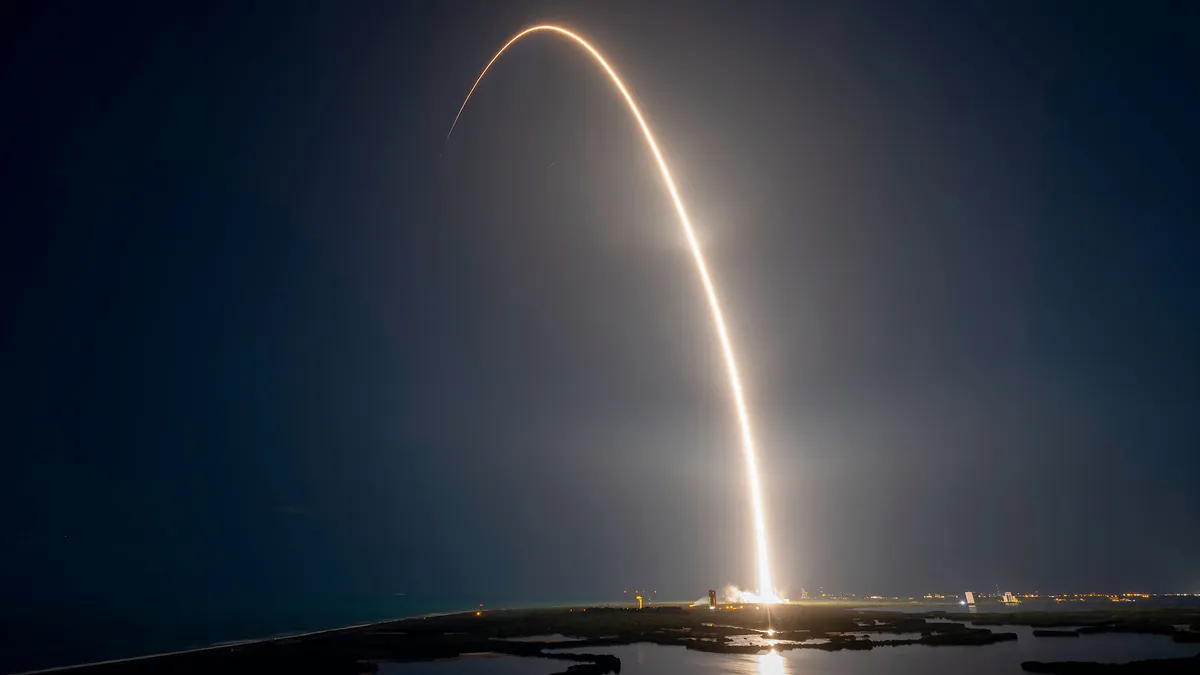The US Federal Aviation Administration (FAA) has grounded SpaceX’s Falcon rockets for the third time in three months after a second-stage problem occurred following the successful launch of a Dragon Crew mission that brought two astronauts to the International Space Station on Saturday.
The suspension halted a planned launch of 20 OneWeb satellites that had been scheduled for late on Saturday, as well as a Starlink satellite launch that had been planned for Wednesday.
At risk of delay are also two major solar system exploration missions from the European Space Administration and NASA that are due to launch this month with narrow launch windows.
SpaceX said the Falcon 9 second stage failed to correctly fire its Merlin Vacuum engine less than 30 minutes after releasing the capsule into orbit.

Deorbit burn
The manoeuvre is designed to ensure the rocket burns up in the atmosphere, rather than becoming orbital space junk, with any debris intended to fall in a previously designated area that had been specified in notifications to mariners and aviators.
The failure meant debris could have fallen outside the designated area.
“Falcon 9’s second stage was disposed in the ocean as planned, but experienced an off-nominal deorbit burn,” SpaceX in a post on spocial media.
“As a result, the second stage safely landed in the ocean, but outside of the targeted area.
“We will resume launching after we better understand root cause.”
The incident is likely to mean an investigation by the FAA, with which SpaceX is involved in a legal dispute over fines related to Falcon 9 activities at Kennedy Space Center and delays in authorising the fifth Starship test flight at the company’s base in south Texas.
Falcon rockets were suspended on 11 July after a second-stage explosion in orbit sent Starlink satellites into a path toward destruction, SpaceX’s first mission failure in more than seven years.
Orbital explosion
Flights resumed after 15 days when the company determined the cause was a liquid oxygen leak and devised a solution.
A suspension of three days came after a Falcon 9 first stage made a crash landing on the deck of a drone ship after a launch on 28 August.
A Falcon 9 is scheduled to launch the ESA’s Hera mission to the Didymos binary asteroid system on 7 October, with a launch window ending on 27 October.
A Falcon Heavy, which uses the same second-stage as the Falcon 9, is to launch NASA’s Europa Clipper to the Jupiter planetary system on 10 October, in a $5 billion (£3.7bn) mission whose window closes on 30 October.





